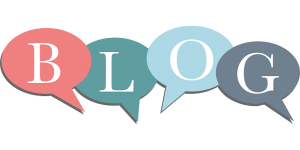 Agents and publishers in their submission guidelines often ask for a list of comparable titles. By identifying these books, they can estimate the size of the print run and a P&L (profit-and-loss statement).
Agents and publishers in their submission guidelines often ask for a list of comparable titles. By identifying these books, they can estimate the size of the print run and a P&L (profit-and-loss statement).
Identifying the current books on the market which serve the needs of your readers helps you with the business of being an author and your bottom-line, too.
The comparative title analysis identifies the authors who reach your readers. You will want to get to know them. And their readers.
And your best strategy is to pay it forward.
The books you read and consider comparative titles in your proposal are ones you should write a thoughtful review and post it on GoodRead or Amazon. Authors read these and so do readers. If you want your book to be reviewed by readers, then you need to review books your readers are reading now.
Consider this a form of guerrilla marketing. On Amazon and GoodReads you can meet your tribe of readers. Get to know your customers and what they like and dislike about the books they are currently reading. How can you write a better book to fulfill the expectations and needs of readers?
 Perhaps you want to write book reviews for publication in a journal, magazine, or newspaper. For example, if you write for women and hope to publish your own work one day then you might consider spending a year becoming a book reviewer for Story Circle Book Reviews. If you write nonfiction and belong to a professional organization, consider writing book reviews in their quarterly journal.
Perhaps you want to write book reviews for publication in a journal, magazine, or newspaper. For example, if you write for women and hope to publish your own work one day then you might consider spending a year becoming a book reviewer for Story Circle Book Reviews. If you write nonfiction and belong to a professional organization, consider writing book reviews in their quarterly journal.
At least consider writing a review and posting it on your blog. If you do, let the author know in an email message and tag them if you share it on social media platforms. Your word-of-mouth advertising of their writing goes a long way in pulling your competition closer.
 Authors of comparative titles you identify will have websites and I recommend you subscribe to their blogs, follow them on Facebook, Twitter, or connect through LinkedIn. Observe how they manage their author persona with social media marketing, online interaction with readers, promotions, and author events. Your competition has much to teach you about what works and what doesn’t. This will help you develop your own brand and style.
Authors of comparative titles you identify will have websites and I recommend you subscribe to their blogs, follow them on Facebook, Twitter, or connect through LinkedIn. Observe how they manage their author persona with social media marketing, online interaction with readers, promotions, and author events. Your competition has much to teach you about what works and what doesn’t. This will help you develop your own brand and style.
The challenge is to convert the competition into your collaborators. Write a thoughtful book review, engage online in social interaction, and attend an author event. The writers will appreciate it and later asking them for the favor of an early endorsement or blurb is much easier.
 By the time your book is about to be released, the titles in your comparative title analysis for your proposal will not be new releases. They may be interested in collaborating on author events with you. Creating this kind of synergy helps sells more books for both of you but don’t wait for your agent or editor to suggest this. They won’t. Authors who collaborate across publishers create the synergy. For example, Andrew Kessler’s Martian Summer (2011) and Cathryn Prince’s A Professor, A President, and a Meteor: The Birth of American Science (2010) together made it easier to pack a crowd at the Museum of the Earth than it was for either one to do a bookstore reading alone.
By the time your book is about to be released, the titles in your comparative title analysis for your proposal will not be new releases. They may be interested in collaborating on author events with you. Creating this kind of synergy helps sells more books for both of you but don’t wait for your agent or editor to suggest this. They won’t. Authors who collaborate across publishers create the synergy. For example, Andrew Kessler’s Martian Summer (2011) and Cathryn Prince’s A Professor, A President, and a Meteor: The Birth of American Science (2010) together made it easier to pack a crowd at the Museum of the Earth than it was for either one to do a bookstore reading alone.
As you study the competition, you will see where books like yours get reviewed. Make a list. You will notice which publishers have new releases in your subject area and subgenre. Make another list. Take notes on which bookstores hosted successful readings and who the author thanks for making it happen.
 Read the competition. As a writer you can learn a great deal by studying the craft used by other writers. What do they accomplish for the reader that you aim to do, too?
Read the competition. As a writer you can learn a great deal by studying the craft used by other writers. What do they accomplish for the reader that you aim to do, too?
And read the Acknowledgments. Here you will find the names of agents and editors who work on books like yours. Gather this information for the preparation of your book proposal and execution of your plan to publish.
When a writer tells me they don’t have time to read comparable works, I know they don’t have time to be an author. Take the time to read. It’s your job.

Thank you, Jill. It’s time to get writing a whole new comparative analysis. It was a lot easier when you were recommending titles. Thanks for all the help you gave me. This is the fun part of the proposal, reading these and comparing to my own manuscript. Cheers!
You are some great tips there, Jill. We should be no means think of the authors of comparitive titles as competitors. Another great reason to read comps that you didn’t mention is fodder for blog ideas and author interviews.